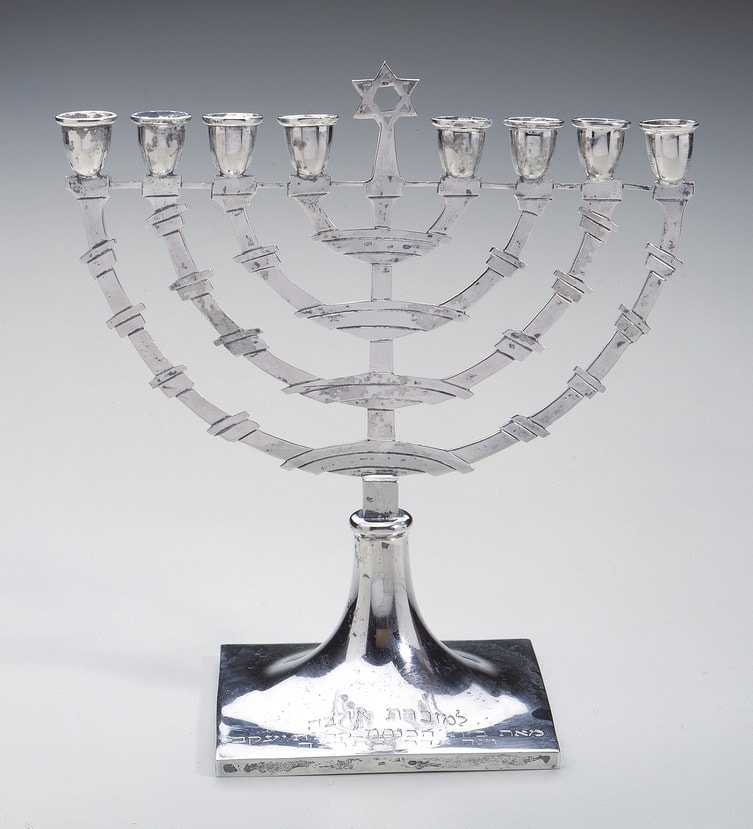
- Object Name:
- Hanukkah Lamp
- Artist/Maker:
- Josef Haller
- Bio:
- active 1902–1924, Vienna
- Place Made:
- Vienna, Austria
- Date:
- 1935 (date of inscription)
- Medium:
- Silver: engraved
- Dimensions:
- 8 1/4 × 8 3/16 × 4 1/8 in. (21 × 20.8 × 10.5 cm)
- Credit Line:
- Gift of Dr. Harry G. Friedman (?)
- Accession Number:
- F 3150
On View
The modern design for this lamp consists of two sets of intersecting semicircles, one curving upward, and the other, in broken segments, curving down. Although it seems to be based in the design principles of such movements as the Bauhaus in Germany, which emphasized polished surfaces with little ornamentation as well as geometric forms, the concept was actually developed several decades earlier.
It was first employed by the artist E. M. Lilien in the cover he created for the Zionist journal "Ost und West" in 1901. His design consisted of a pattern of seven-branch menorot, in similar form to this lamp, and Stars of David, both of which had been adopted as emblems of the Zionist movement. "Ost und West" continued in publication for several decades, and it is possible that it served as an inspiration for the creators of this lamp.
Kahilath Jakob was a small prayer room located at Judengasse 11 in Vienna. The recipient of this lamp had only a few years to enjoy it before the disruptions of World War II. The synagogue was one of a few of the sixty-odd Jewish houses of worship in Vienna to survive the war.
It was first employed by the artist E. M. Lilien in the cover he created for the Zionist journal "Ost und West" in 1901. His design consisted of a pattern of seven-branch menorot, in similar form to this lamp, and Stars of David, both of which had been adopted as emblems of the Zionist movement. "Ost und West" continued in publication for several decades, and it is possible that it served as an inspiration for the creators of this lamp.
Kahilath Jakob was a small prayer room located at Judengasse 11 in Vienna. The recipient of this lamp had only a few years to enjoy it before the disruptions of World War II. The synagogue was one of a few of the sixty-odd Jewish houses of worship in Vienna to survive the war.
Information may change as a result of ongoing research.